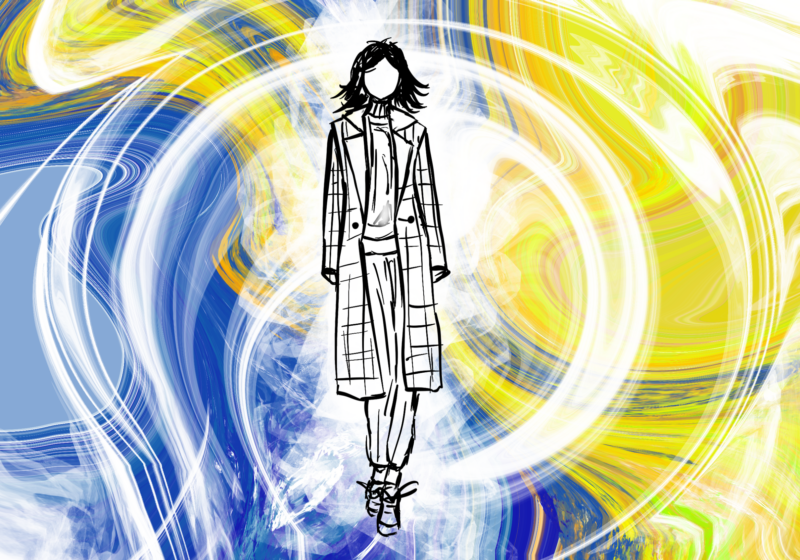“Hi,” the scruffy, middle-aged man dressed in dusty jeans and a faded, plaid shirt said in a friendly tone as he approached my car. Looking back at the man, I focused not upon his appearance but rather upon his seemingly genuine smile and the endearing sound of his voice.
“I was wondering if you could do me a favor,” he continued. “You see, my daughter is in Strong Memorial Hospital right now with a terrible case of pneumonia.”
“I’m sorry to hear that,” I said sympathetically.
“Yeah, she’s in bad shape, but I’m in a nasty custody battle with my wife and, according to the court, I only have one more hour to see my daughter and be with her until my wife gets full custody over her. But my car is in the shop and I don’t get my paycheck for another couple of days. Do you think you could possibly give me a couple of dollars so I can catch the bus and see my baby girl one more time?” By the end of this speech, the man was choked up and he looked away for a brief moment as if to fight away the emotion. I was so moved by his situation that I decided to give him something more valuable than a couple of dollars – I’d give him a ride to the hospital myself. “It’s your lucky day,” I told him with a smile. “Hop in and I’ll take you to your daughter.” Suddenly, the man began to fidget nervously.
“I? I couldn’t. Just give me a couple of dollars and I’ll find my way.”
“Don’t be ridiculous,” I shot back. “Just get in.”
“What the hell’s the matter with you?” he snapped back at me. “Just give me the damn money!” It was only then that I began to examine the man before me more closely – the dirt-stained jeans, the grimy fingernails, the thick stubble of neck hair that grew in a patchy formation. The man standing before me probably hadn’t cleaned himself in days, maybe weeks. This man, I reasoned to myself, was homeless. Upon having this realization, I quickly got into my car and sped away.
As I think back to this chance encounter, I distinctly remember the emotion that pervaded my consciousness as I fled the scene. It is the same feeling of embarrassment and annoyance that overcomes you when you pull up to a red light and you see a homeless man approaching your car with a poorly written cardboard sign.
Why are we overcome with these negative emotions? Why do we pull out our cell phones and pretend to talk to avoid looking into the eyes of a homeless man while he knocks gently on our windshields? Why is the shame in our eyes and the innocence in his?
A few weeks later, I was entering the front door of my house when I heard a voice call out behind me. As I turned around, I saw that it was the homeless man whom I previously encountered, wearing the same raggedy, dirt-caked outfit.
“My daughter is in the hospital,” he began, before I cut him off.
“And let me guess, you only have one hour to see her, right? Maybe next time you should try new material.” Most cities throughout the United States can be broken down into numerous sections, each encompassing a distinct socio-economic population. These different parts of the city do not necessarily overlap, however, because of various buffers that help to moderate the interactions of the different socio-economic levels. Because of the declining state of its economy, however, the inner city of Rochester has been unable to adequately provide these “buffers.” As a direct consequence, the different socio-economic groups have began to spill over into bordering sections of the city. It was this sequence of events that had facilitated a situation whereby a homeless man approached me in my own driveway.
But as uncomfortable as this situation made me feel, it was hardly the first of its kind.
Recently, as my housemate was parking his car on the street next to our house, he noticed a woman approaching his car. The woman was wearing ripped leg tights and a child’s jacket, which barely covered her stomach. The woman asked my friend if he could either spare any change or a cigarette. He couldn’t, he told her apologetically, because he wasn’t carrying his wallet with him at the time and he didn’t smoke. As my friend began to walk toward our house, the woman quickly ran in front of him and offered to give him oral sex if he would take her to the 7-11 and buy her a pack of cigarettes.
And while we’re on the topic of 7-11, I should tell you that I no longer go to that 7-11 down the street. A homeless man sits in front of that 7-11 all day, everyday, and, six months ago, I made the big mistake of putting my phone on “speaker” while I talked to my girlfriend in front of the 7-11. Now, each time I go to the 7-11, this man waits for me outside my car (which he recognizes), calls me by my name and asks me how my girlfriend (whose name he also knows) is doing. He then follows me inside the store and continues to ask me personal questions about my life, unless, of course, I give him a couple of dollars. Then he’ll leave me alone.
When I was growing up in the suburbs of Washington D.C., I encountered very few homeless people. Perhaps I’d walk by one during a class field trip, or see one standing on a busy intersection.
And while seeing a homeless person would evoke emotions of sadness and pity, I couldn’t even begin to conceptualize the plight of the homeless person. In my current living situation, however, there is no longer a degree of separation that exists between the homeless and myself.
As I lay in my warm bed each night with my thermostat set to a toasty 70 degrees, I need only look out my window to see a homeless woman who, on most nights, sleeps on a bench across from my house. For her, there is no climate control to offset the below-freezing temperatures.
And while I will dip into a trust fund established by my grandparents to help me pay for the newest iPod, a woman is willing to defile herself, and for what? A pack of cigarettes? Yet through it all, it is me who complains about “being bothered,” about how much easier my drive to school would be every morning if the homeless man wouldn’t be waiting for me at the red light to knock on my window. Why is that?
Schwartz is a Take Five Scholar.


